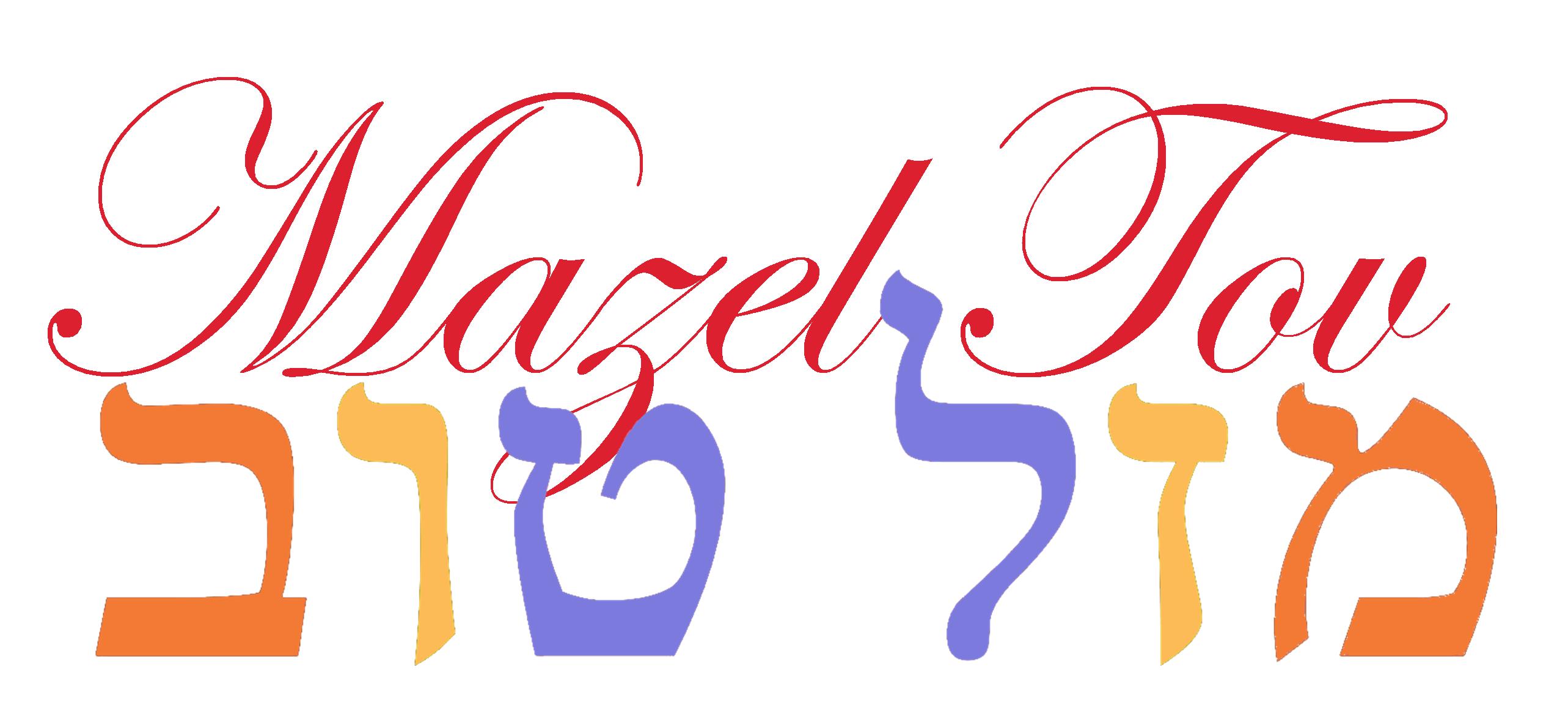The word “mazal” has a rich history and cultural importance that goes beyond its simple translation as “luck” or “fortune.” In Jewish tradition, the phrase “mazal tov” is a common expression used to celebrate happy occasions like weddings, bar mitzvahs, and other milestones. However, the true meaning of mazal is far more profound, encompassing ideas of destiny, blessing, and even cosmic alignment. As we explore its origins and usage, you’ll discover why this term holds such a special place in the hearts of many. So, let’s take a closer look at what mazal really means and why it’s celebrated in so many contexts.
At its core, mazal is tied to the Hebrew word “mazalot,” which refers to constellations and the stars. This connection to the heavens gives the term an almost celestial quality, suggesting that luck or fortune isn’t merely random but part of a larger, interconnected system. In modern times, mazal is often used in everyday life, whether in personal celebrations or business deals. For example, in the diamond industry, the phrase “mazal and bracha” is a customary way to seal agreements, symbolizing good wishes and blessings for the future.
Despite its widespread use, the meaning of mazal tends to be misunderstood by those unfamiliar with its cultural roots. It’s not just about congratulating someone for something they’ve achieved; it’s about recognizing the larger forces at play in their lives. This article will delve into the various layers of mazal meaning, exploring its historical, cultural, and spiritual dimensions. You’ll learn how this simple word carries deep significance and how it continues to resonate across generations.
What Exactly is Mazal Meaning?
When people hear the word “mazal,” they often think of luck or good fortune. While this interpretation isn’t wrong, it’s only part of the story. Mazal, in its original form, comes from the Hebrew word “mazalot,” which means constellations. This ties the concept of mazal to the stars and the idea that certain cosmic alignments influence our lives. So, in a way, mazal isn’t just about random chance—it’s about recognizing the patterns and forces that shape our existence.
Now, you might be wondering, how does this ancient concept apply to modern life? Well, mazal is still very much alive today, especially in Jewish communities. It’s a word that’s used to express joy and celebration, but also to acknowledge the bigger picture. For instance, when someone says “mazal tov” at a wedding, they’re not just congratulating the couple—they’re wishing them a life filled with blessings and alignment with the universe’s positive energies. It’s a way of saying, “May everything fall into place for you.”
Why Does Mazal Have Such Deep Cultural Significance?
The cultural significance of mazal can’t be overstated. It’s a word that’s been passed down through generations, carrying with it the weight of tradition and meaning. In Jewish culture, mazal is more than just a lucky charm or a congratulatory phrase—it’s a way of thinking about life. It encourages people to see the world as interconnected, where every action and event is part of a larger tapestry. This perspective fosters gratitude and humility, reminding us that success isn’t solely the result of our efforts but also the alignment of various factors beyond our control.
So, why does mazal resonate so deeply with people? It’s because it speaks to something universal—the desire to find meaning in the randomness of life. Whether you’re celebrating a personal achievement or sealing a business deal, mazal serves as a reminder that we’re all part of something greater. It’s a word that bridges the gap between the tangible and the intangible, the seen and the unseen. In this way, mazal meaning becomes a reflection of how we view our place in the world.
What Role Does Mazal Play in Celebrations?
One of the most common places you’ll encounter mazal is during celebrations. Whether it’s a wedding, bar mitzvah, or even a business agreement, mazal is often invoked as a way to mark the occasion. For example, in the diamond industry, the phrase “mazal and bracha” is a traditional way to close a deal. This isn’t just about saying “good luck”; it’s about creating a sense of harmony and mutual respect between the parties involved. The handshake that accompanies the phrase symbolizes trust and goodwill, reinforcing the bond between them.
Even in personal celebrations, mazal plays a vital role. When someone says “mazal tov” at a wedding, they’re not just congratulating the couple—they’re acknowledging the new chapter they’re embarking on together. It’s a way of wishing them a life filled with blessings, happiness, and alignment with the universe’s positive energies. In this sense, mazal isn’t just a word; it’s a ritual, a tradition that connects people across time and space.
Where Does Mazal Fit in Modern Life?
In modern life, mazal has found its way into various contexts, from personal milestones to professional settings. In the diamond industry, for instance, the phrase “mazal and bracha” is a customary way to seal agreements. This practice isn’t just about saying “good luck”; it’s about creating a sense of trust and mutual respect between the parties involved. The handshake that accompanies the phrase symbolizes a deeper connection, one that transcends the transactional nature of business deals.
Similarly, in personal life, mazal is often used to celebrate achievements and milestones. Whether it’s a graduation, a new job, or a significant birthday, saying “mazal tov” is a way of recognizing the hard work and effort that went into reaching that point. Yet, it’s also a reminder that success isn’t solely the result of individual effort—it’s the alignment of various factors, both seen and unseen. In this way, mazal meaning becomes a reflection of how we view our place in the world and our relationship with others.
How Does Mazal Influence Our Perception of Luck?
When we think about luck, we often associate it with random chance or fortune. However, mazal challenges this notion by suggesting that luck isn’t entirely random—it’s influenced by larger forces, like the stars and the universe. This perspective encourages us to see life as interconnected, where every event and action is part of a larger pattern. By embracing this view, we can shift our focus from individual achievement to recognizing the role of external factors in our success.
So, how does mazal influence our perception of luck? It encourages us to see beyond the surface and recognize the deeper forces at play. For example, when someone achieves something great, we might be tempted to attribute it solely to their hard work. While effort is undoubtedly important, mazal reminds us that success is also influenced by factors beyond our control, such as timing, opportunity, and even cosmic alignment. This perspective fosters gratitude and humility, reminding us that we’re all part of something greater.
What Does Mazal Mean in Business?
In the business world, mazal takes on a slightly different meaning. While it still carries the connotation of luck and fortune, it’s often used in a more symbolic sense. For example, in the diamond industry, the phrase “mazal and bracha” is a customary way to close deals. This practice isn’t just about wishing someone good luck—it’s about creating a sense of trust and mutual respect between the parties involved. The handshake that accompanies the phrase symbolizes a deeper connection, one that transcends the transactional nature of business deals.
Even outside the diamond industry, mazal is sometimes used in professional settings as a way of acknowledging success and achievement. Whether it’s a promotion, a new partnership, or a successful project, saying “mazal tov” is a way of recognizing the hard work and effort that went into reaching that point. Yet, it’s also a reminder that success isn’t solely the result of individual effort—it’s the alignment of various factors, both seen and unseen. In this way, mazal meaning becomes a reflection of how we view our place in the world and our relationship with others.
Can Mazal Be Used in Everyday Life?
Absolutely! Mazal isn’t just reserved for special occasions or formal settings—it can be used in everyday life to express joy, celebration, and even gratitude. For instance, if a friend gets a new job or achieves a personal goal, saying “mazal tov” is a great way to congratulate them and acknowledge their hard work. It’s a simple yet meaningful way of showing support and encouragement.
Even in casual conversations, mazal can be used to express positive sentiments. For example, if someone shares good news, you might respond with “mazal tov” as a way of celebrating their success. This practice fosters a sense of community and connection, reminding us that we’re all part of something larger. In this way, mazal meaning becomes a reflection of how we view our relationships and interactions with others.
What Are Some Common Misconceptions About Mazal Meaning?
Despite its widespread use, there are a few common misconceptions about mazal meaning. One of the biggest is that it’s simply a congratulatory phrase, similar to saying “good luck” or “congratulations.” While these interpretations aren’t entirely wrong, they fail to capture the deeper significance of the word. Mazal isn’t just about celebrating success—it’s about recognizing the larger forces at play in our lives.
Another misconception is that mazal is solely a Jewish concept. While it does have its roots in Jewish tradition, the idea of destiny and cosmic alignment is universal. People from all walks of life can relate to the notion that success isn’t just the result of individual effort but also the alignment of various factors beyond our control. In this way, mazal meaning becomes a reflection of how we view our place in the world and our relationship with others.
Finally, some people think that mazal is only used in formal or traditional settings. However, it can be used in everyday life to express joy, celebration, and even gratitude. Whether it’s congratulating a friend on a new job or celebrating a personal milestone, mazal is a versatile word that can be adapted to various contexts.
Table of Contents
- What Exactly is Mazal Meaning?
- Why Does Mazal Have Such Deep Cultural Significance?
- What Role Does Mazal Play in Celebrations?
- Where Does Mazal Fit in Modern Life?
- How Does Mazal Influence Our Perception of Luck?
- What Does Mazal Mean in Business?
- Can Mazal Be Used in Everyday Life?
- What Are Some Common Misconceptions About Mazal Meaning?
Summary of Mazal Meaning
Mazal is more than just a word—it’s a concept that carries deep cultural and spiritual significance. From its origins in the Hebrew word “mazalot,” meaning constellations, to its modern usage in celebrations and business deals, mazal represents the idea that life is interconnected and influenced by larger forces. Whether you’re celebrating a personal achievement or sealing a professional agreement, saying “mazal tov” is a way of acknowledging the positive energies at play in your life. By embracing this perspective, we can shift our focus from individual achievement to recognizing the role of external factors in our success, fostering gratitude and humility along the way.



